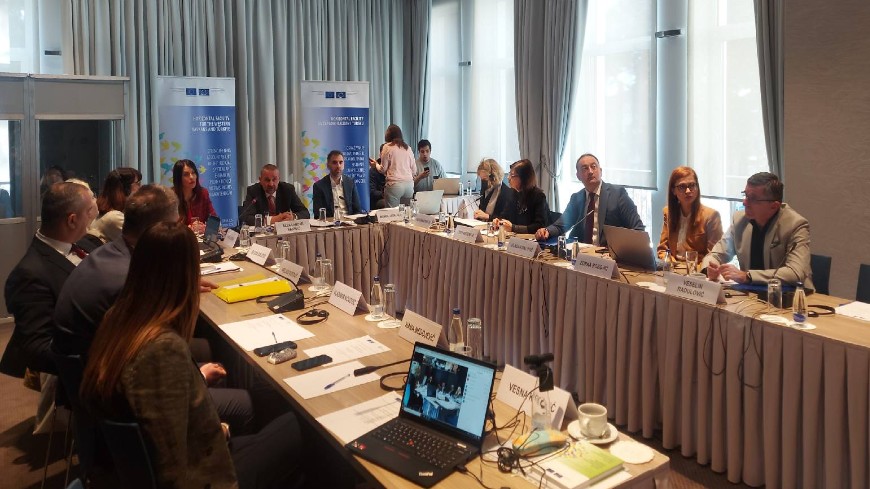The co-operation between the European Union and the Council of Europe on advancing judicial reform in Montenegro has developed considerably in recent years, with a heavy emphasis on relevant work of the Venice Commission and the Group of States against Corruption (GRECO). The positive outcomes of that co-operation, as reiterated at 2023 Reykjavík Summit, remain instrumental for the EU’s enlargement.
Montenegro’s judicial system has undergone a substantial transformation in past years, with various legal and institutional arrangements made to facilitate reforms in line with European standards. However, after years of effort, “Montenegro remains moderately prepared to apply the EU acquis and European standards in the area of judiciary and fundamental rights”, as noted in 2023 European Commission’s Report for Montenegro. The judiciary is facing an urgent demand to improve efficiency and ensure professional and accountable functioning.
Key short-term priorities in this context are focused on aligning the Law on Judicial Council and judges and the Law on State Prosecution Office with GRECO and Venice Commission’s recommendations. With new Working Groups (WG) established, a strong dynamic is taking place, involving the Ministry of Justice, Judicial and Prosecutorial Councils, associations of judges and prosecutors and civil society.
To facilitate the alignment of the Law on State Prosecution Office with relevant European standards, meeting of Working Group members with Council of Europe consultants took place in Budva, on 22 and 23 February. Drawing upon unique expertise and standards of the Consultative Council of European Prosecutors (CCPE), the WG reviewed and discussed proposed legislative solutions for strengthening independence of the Prosecutorial Council, addressing the risks of politicisation and establishing merit-based conditions and procedures for appointment, promotion, appraisal, ethics and disciplinary liability of judges and prosecutors. The development of bylaws and other non-legislative measures will follow to facilitate effective implementation of the new laws.
These legislative changes will mark an important step in reinforcing justice sector reform and improving the delivery of justice to citizens, but also in bringing Montenegro closer to the EU.
Support to these legislative processes is being facilitated through the framework of the action "Strengthening accountability of the judicial system and enhancing protection of victims' rights in Montenegro" which is part of the joint European Union and Council of Europe programme Horizontal Facility for the Western Balkans and Türkiye.



